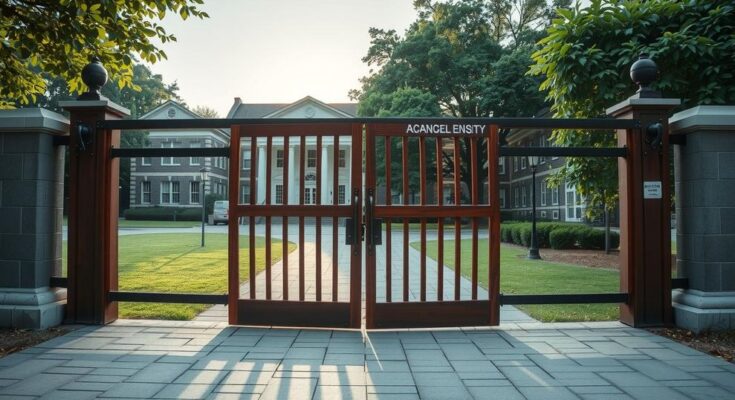Nigeria has suspended the approval of new private universities for one year to review regulations. The application fee has increased significantly, and existing applications must meet the new requirements within 30 days to avoid cancellation. Despite the rise in private institutions, public universities continue to admit the majority of students.
The Nigerian government has decided to suspend the approval of new private universities for the next year, effective February 10. This measure is aimed at allowing time for a review of the regulations governing the establishment of private universities. The National Universities Commission (NUC), responsible for supervising university education in the country, issued a formal statement regarding this decision.
During this one-year suspension, applications for new private universities will not be accepted. Nonetheless, any applications that have progressed beyond the initial stage will continue to be evaluated and may receive government approval if they satisfy the necessary criteria.
In conjunction with this suspension, the application fee for prospective private universities has increased significantly, rising from N1 million ($665) to N5 million ($3,325). Additionally, the processing fee has been raised dramatically from N5 million ($3,325) to N25 million ($16,626). Applicants who have already purchased application forms must remit the new processing fee within thirty working days to avoid cancellation of their applications.
Private universities have proliferated in Nigeria, largely due to disruptions in public universities caused by lecturer strikes. Nevertheless, public universities continue to enroll the majority of students, admitting approximately 90% of all applicants. The initial private universities, such as Babcock University, Igbinedion University, and Madonna University, were founded in 1999 to address the increasing demand for higher education.
The Nigerian government has enacted a one-year suspension on the approval of new private universities while increasing fees associated with the application process. This suspension aims to facilitate a review of the regulations governing private university establishment. While public universities still dominate student admissions, the proliferation of private universities reflects the ongoing demand for higher education alternatives in Nigeria.
Original Source: globalsouthworld.com




